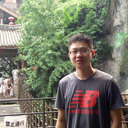Effect of Hedyotis Diffusa Willd extract on tumor angiogenesis.
Ključne riječi
Sažetak
Inhibition of tumor angiogenesis has become an attractive target of anticancer chemotherapy. However, drug resistance and cytotoxicity against non-tumor associated endothelial cells limit the long-term use and the therapeutic effectiveness of angiogenesis inhibitors, thus increasing the necessity for the development of multi-target agents with minimal side effects. Traditional Chinese medicine (TCM) formulas, which have relatively fewer side effects and have been used clinically to treat various types of diseases, including cancer, for thousands of years, are considered to be multi-component and multi-target agents exerting their therapeutic function in a more holistic way. Hedyotis Diffusa Willd (EEHDW) has long been used as an important component in several TCM formulas to treat various types of cancer. Although recently we reported that EEHDW promotes cancer cell apoptosis via activation of the mitochondrial-dependent pathway, the precise mechanism of its tumoricidalactivity still remains to be clarified. In the present study, we investigated the angiogenic effects of the ethanol extract of EEHDW. Cell cycle analysis was perfomed using flow cytometry. Cell viability was analyzed using MTT assay. We found that EEHDW inhibited angiogenesis in vivo in chick embryo chorioallantoic membrane (CAM). In addition, we observed that EEHDW dose- and time-dependently inhibited the prolife-ration of human umbilical vein endothelial cells (HUVEC) by blocking the cell cycle G1 to S progression. Moreover, EEHDW inhibited the migration and tube formation of HUVECs. Furthermore, EEHDW treatment down-regulated the mRNA and protein expression levels of VEGF-A in HT-29 human colon carcinoma cells and HUVECs. Our findings suggest that inhibiting tumor angiogenesis is one of the mechanisms by which EEHDW is involved in cancer therapy.



